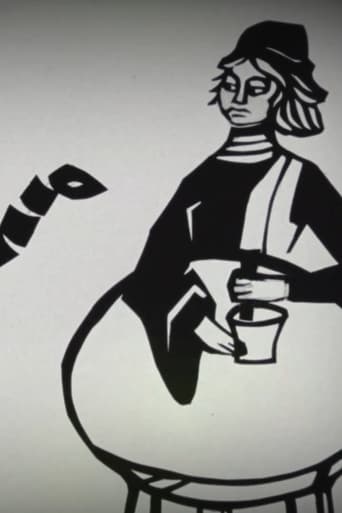Somnium Lapidum
5.5
Animation
Rated:
2016
0h3m
On:
Country: Canada
This stop-motion 16mm film offers an audiovisual meditation on the material animation of stones. The concept is inspired by Camillo Leonardi's "Speculum Lapidum", published in 1533, which describes the magical healing virtues of a variety of stones, categorized by colour. The character-based animated vignettes are inspired by the woodcuts in “De Hortus Sanitatis”, a natural history encyclopedia published in 1485, which details various methods of harnessing the power of gems. It was believed at the time that a given gem's powers could be absorbed through focused viewing. Proposing an analogy between this belief and attraction to cinema, this film offers audiences an opportunity to absorb the depicted stones’ energies by viewing their images. The title, Somnium Lapidum, or Dream Stones, is a reference to the imaginative content of the “Speculum Lapidum” and the dreamlike experience of cinematic viewership. This stop-motion 16mm film offers an audiovisual meditation on the material animation of stones. The concept is inspired by Camillo Leonardi's "Speculum Lapidum", published in 1533, which describes the magical healing virtues of a variety of stones, categorized by colour. The character-based animated vignettes are inspired by the woodcuts in “De Hortus Sanitatis”, a natural history encyclopedia published in 1485, which details various methods of harnessing the power of gems. It was believed at the time that a given gem's powers could be absorbed through focused viewing. Proposing an analogy between this belief and attraction to cinema, this film offers audiences an opportunity to absorb the depicted stones’ energies by viewing their images. The title, Somnium Lapidum, or Dream Stones, is a reference to the imaginative content of the “Speculum Lapidum” and the dreamlike experience of cinematic viewership. This stop-motion 16mm film offers an audiovisual meditation on the material animation of stones. The concept is inspired by Camillo Leonardi's "Speculum Lapidum", published in 1533, which describes the magical healing virtues of a variety of stones, categorized by colour. The character-based animated vignettes are inspired by the woodcuts in “De Hortus Sanitatis”, a natural history encyclopedia published in 1485, which details various methods of harnessing the power of gems. It was believed at the time that a given gem's powers could be absorbed through focused viewing. Proposing an analogy between this belief and attraction to cinema, this film offers audiences an opportunity to absorb the depicted stones’ energies by viewing their images. The title, Somnium Lapidum, or Dream Stones, is a reference to the imaginative content of the “Speculum Lapidum” and the dreamlike experience of cinematic viewership. This stop-motion 16mm film offers an audiovisual meditation on the material animation of stones. The concept is inspired by Camillo Leonardi's "Speculum Lapidum", published in 1533, which describes the magical healing virtues of a variety of stones, categorized by colour. The character-based animated vignettes are inspired by the woodcuts in “De Hortus Sanitatis”, a natural history encyclopedia published in 1485, which details various methods of harnessing the power of gems. It was believed at the time that a given gem's powers could be absorbed through focused viewing. Proposing an analogy between this belief and attraction to cinema, this film offers audiences an opportunity to absorb the depicted stones’ energies by viewing their images. The title, Somnium Lapidum, or Dream Stones, is a reference to the imaginative content of the “Speculum Lapidum” and the dreamlike experience of cinematic viewership.



 AD
AD